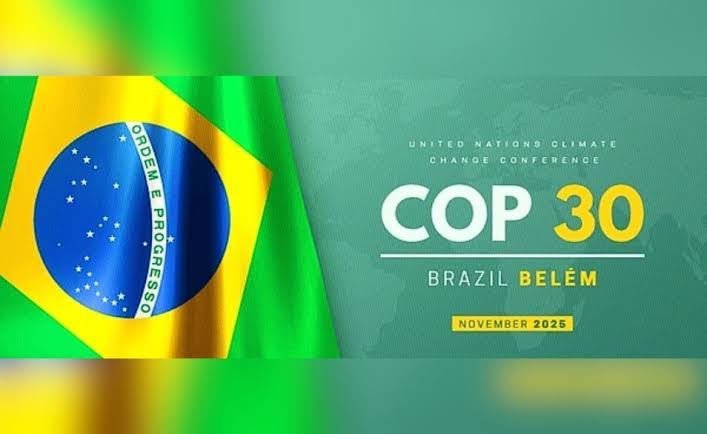Staff Correspondent
Published:2025-11-02 18:37:47 BdST
CSOs alliance demands bold and just action from world leaders at COP30
The Climate Justice Alliance, Bangladesh (CJA-B), a coalition of more than 50 national and international civil society organisations (CSO), has urged world leaders to ensure bold, just, and inclusive decisions at the upcoming COP30 climate conference.
The call was made at an event held on Sunday at the Crowne Plaza Hotel in Dhaka.
The alliance expressed concern over the slow pace of global climate governance under the United Nations Framework Convention on Climate Change (UNFCCC), noting that it has not been able to adequately support climate actions in developing countries.
Civil society representatives emphasised that COP30 presents a significant opportunity to address this crisis.
At the event titled “COP30: Articulating CSO Positions Together”, Sheikh Nur Ataya Rabbi, assistant manager (Research and Advocacy) at CPRD, presented the demands of civil society.
Shaheen Anam, executive director of Manusher Jonno Foundation, said, “Climate change is no longer a future threat — it is already affecting our daily lives. Our negotiators should highlight both the suffering and resilience of our people. We have little influence over world leaders who spend huge sums on wars but hesitate to fund climate action. This is a matter of morality and justice, and it must remain central to the COP discussions.”
Md Shamsuddoha, chief executive of CPRD, added, “COP30 must evaluate whether we are truly on track to achieve the 1.5°C target. The phase out of fossil fuels remains slow, making finance, technology, and capacity support from developed countries critical. At the same time, the Global Goal on Adaptation (GGA) must ensure that adaptation actions deliver tangible and measurable benefits.”
The alliance noted that the spirit of multilateral cooperation to address global climate crises has weakened in recent years.
“COP30 should be a platform to rebuild global solidarity. World leaders must take bold and collective action now — failure is not an option,” the statement read.
Other speakers at the event included Nuzhat Jabin (Christian Aid Bangladesh), Talha Jamal (Islamic Relief Bangladesh), Hasin Jahan (WaterAid Bangladesh), Manish Kumar Agrawal (Concern Worldwide Bangladesh), and Mohammad Akmal Shareef (Action Against Hunger Bangladesh).
Experts including Suborna Barua (University of Dhaka), Shah Abdul Saadi and AKM Sohel (Economic Relations Division), Md Ziaul Haque (Department of Environment), and Fazle Rabbi Sadek Ahmed (PKSF) also shared their insights on the CSO position paper.
Key Demands of CJA-B
The CJA-B has outlined a set of key demands calling for stronger political will, financial commitments, and equity-focused mechanisms in the global climate agenda as world leaders prepare for COP30.
The group emphasised that the “Baku to Belem Roadmap to 1.3T” must be backed by clear political commitment to ensure adequate financing for climate action. It urged that funding for developing nations should be public, grant-based, and concessional, rather than reliant on loans or private investment mechanisms.
CJA-B also called on developed countries to fully and transparently meet their financial obligations under Article 9.1 of the Paris Agreement, which mandates them to provide climate finance to developing countries.
In its submission, the group stressed that the upcoming NDC 3.0 (Nationally Determined Contributions) must feature ambitious mitigation targets consistent with the 1.5°C global warming limit, and should further strengthen the Mitigation Work Programme to accelerate global emission reductions.
CJA-B urged negotiators to finalise a robust indicator framework for the Global Goal on Adaptation (GGA), ensuring it is closely tied to scaled-up finance, technology transfer, and capacity-building support for vulnerable nations facing the brunt of climate impacts.
The group further demanded that Loss and Damage be institutionalised as a permanent agenda item in future COP negotiations, with secured, long-term financing under the New Collective Quantified Goal (NCQG) to support affected countries.
In addition, the activists proposed that COP30 adopt a Just Transition Action Mechanism to protect the rights of workers, indigenous peoples, and other vulnerable groups during the shift toward a low-carbon economy.
Finally, CJA-B called for a strengthened Gender Action Plan that integrates gender equality, indigenous rights, and human rights across all processes under the UN Framework Convention on Climate Change (UNFCCC).
Unauthorized use or reproduction of The Finance Today content for commercial purposes is strictly prohibited.


